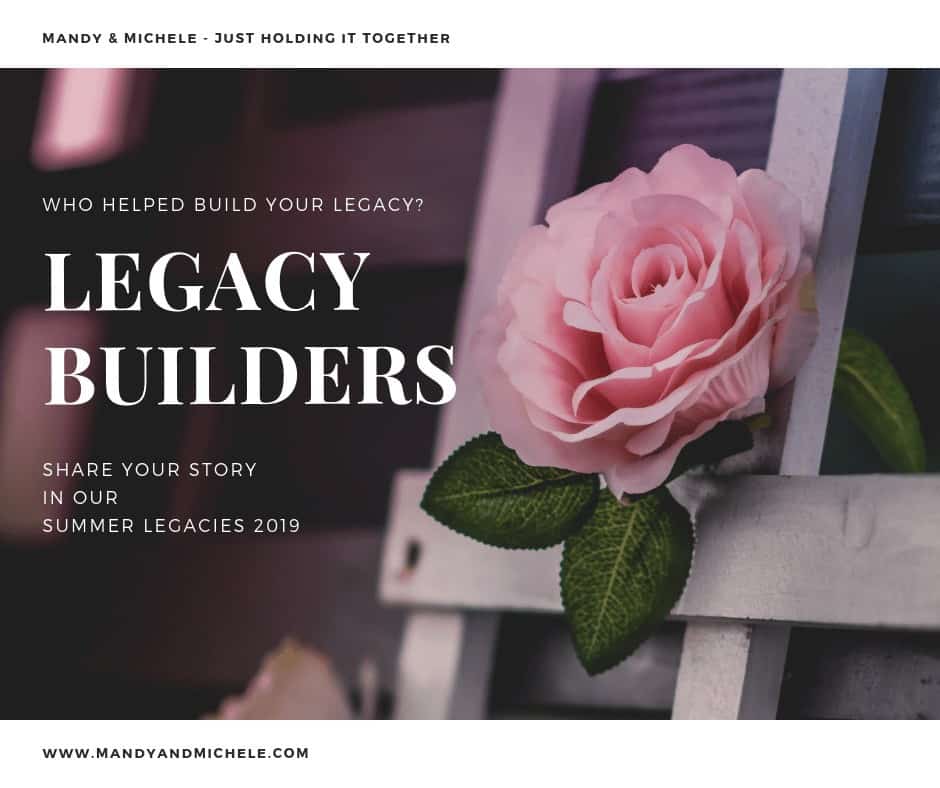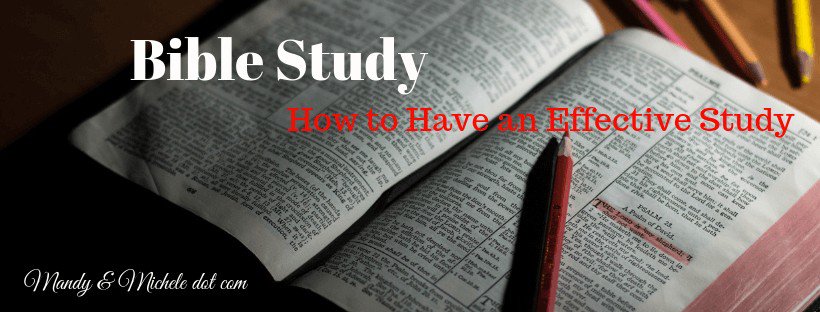There are many different methods to study the Bible. There are also several acronym methods that are similar to each other but all have the same end result: an effective Bible study. Let me help you walk through one method of study so you can dig in deep in the Word for yourself.
If you’re not sure about Bible study, whether it is something you should be doing, you can read 8 Benefits of Regular Bible Study. This should help you understand the importance of Bible study for your spiritual growth.
So, if you’ve been wondering how to study the Bible for yourself, then you’ve come to the right place!
Various Bible Study Methods
Let’s take a quick peek at some of the Bible study methods that are out there. You may recognize some of these, if not in title, then in the description:
- The Survey Method is like a panoramic broad view of the Book that you’re studying. You learn about the author or main character, the geography, the era, the theme and important topics.
- The Topical Method is like many of the Bible study books you see in Christian bookstores. It focuses on a specific topic and explores the whole Bible on that topic.
- The Biographical Method is a biography of a Biblical character, like David, for instance, and studies all about him, what kind of man he was and what he did that made him so well-known.
- The Word Study Method is a study of words or terms that may be unfamiliar to readers, like, redemption, propitiation, sin, the blood of the Lamb, etc. Tools used for this type of study would be a concordance and a Bible dictionary to help you dig deep.
- The Devotional Method is more of a devotional time than a technical study. You read a portion of text, the devotion based on that text as well as an end with a simple prayer. This is probably a method that you have heard of or maybe even used before.
- The Expositional Method is studying the Bible verse-by-verse. This is more familiarly known as the Inductive Bible Study Method. It uses the three elements of Observation, Interpretation, and Application.
Source: originally published on Women’s Tabletop Friendship as 6 Bible Study Methods to Enhance Your Bible Understanding.
Of these six methods, I most often use the Topical, Word, and Expositional Methods. I would love to work on a Survey study sometime, maybe of the Minor Prophets since they would be suited to a panoramic survey.
How Deep Do You Want to Study?
That’s a great question, how deep do you want to study? How effective do you want your Bible study to be?
A couple of questions to consider are, do you want to let someone teach you the Word or do you want to learn for yourself?
If you want to hear someone else lead a study, like in a women’s study group, for example, you would read the assigned work and then listen to the study leader. You would respond to the questions and possibly turn the pages of your Bible to find the answers. You may even write down notes as you go along.
Will you learn from this method? Sure you will but if you’re like me, you may quickly forget what you learned from it.
Now, if you want to go deeper in your Bible study, and if you want your study to be effective, you will need to do the research.
Effective Bible study means you dig into the truth for yourself.
When you use the Bible tools to find the answers, you will remember what you’ve learned so much more than listening to someone else teach it.
You see, when others present Bible studies to you, they’ve done the research and dug into the Word to find what they want to teach. They reap the rewards of an in-depth study but you, the listener, not so much.
That’s the kind of study you want to do, dig deep for yourself, right?
So, how do you do this?
Tools for Effective Bible Study

To study deep, you’ll need some tools. Let’s look at what they are first, then we’ll go over the “how to study” part.
Strong’s Exhaustive Concordance. This is a great reference book to have on your bookshelf. You can use other concordances as well but as far as I know, this one is the most complete one on the market.
Vine’s Expository Dictionary of Old and New Testament Words. This reference is invaluable. It gives a great explanation of the original meanings, whether it’s Hebrew or Greek.
The New Bible Commentary, Revised. This is a one-volume book and is very handy to have. However, you may have other commentaries that are just as helpful.
These are my top ‘go-to’ reference books on my bookshelf. Some others that I use are:
- Nave’s Topical Bible
- Zondervan Handbook to the Bible
- The New Strong’s Dictionary of Bible Words
- Commentary on the Whole Bible by Jamieson, Frusset, Brown
Do you know where I bought many of my hard copy reference books? Thrift shops, Bible store second-hand section, second-hand stores, etc. People are no longer keeping their hard copies of these amazing reference books. Possibly they received them in inheritances and just don’t feel they need them. But, I do, so I’m blessed with them!
If it isn’t feasible to have hard copy books, then have you considered the Blue Letter Bible or Bible Gateway? They have excellent resources, commentaries, tools, everything you would need to do a comprehensive study. I sometimes use them but I do prefer my hard copy books. There’s just something about turning the pages of a physical book, you know?
Additional Tools
Some other tools you will need before you get started with your next great study are:
- A good pen
- Quality colour pencils and a pencil sharpener
- A Bible you can mark in that has a wide margin for notes
- Notebook
- A variety of colour Micron pens with archival ink that won’t bleed through thin pages
- A large 5×7 inch index card for developing a keyword list
- Kari King Dent’s list of keywords
If you don’t want to mark up your favourite Bible, you can always check the thrift stores or second-hand stores for a Bible. Or, you can print out the book you want to study from an online source like Bible Gateway. I usually paste the content into Word, then enlarge the font size to something I can read.
So, let’s talk about the “how to” part of an effective Bible study now.
Getting Started with an In-depth Study
Remember I mentioned the method that I use the most, the Expositional Method, otherwise known as the Inductive Method? Let’s look at how that works. Once you have this figured out, you’ll be able to apply these principles to either the Topical Study or Word Study Methods.
This post, 3 Elements of Inductive Study Method, goes into more detail of the inductive approach.
Step 1 – begin with prayer
First, the thing you should always do before starting any kind of Bible activity is, begin with prayer. I know you knew that!
Step 2 – decide on a book study
Decide which Bible book you are going to study. If this is your first time using this method, you may want to start with a short book like Jude or Philemon. They each contain 25 verses so it would be a great introduction to the Inductive Study Method.
Step 3 – identify keywords
You’ll need your additional tools, listed above.
Read through the text a few times and note if there are any keywords that stand out to you. Write them on the index card.
Label this index card with the Book Name Keywords, ie, Philemon Keywords. You can use this card as a bookmark later on.
Research Reason
As you are reading the text, you may see words that you are not familiar with, especially if you’re using the King James Version. Though it doesn’t matter what version you use, there are words that need further discovery.
For example, you may see “sound doctrine” or “healing” or “salvation” and wonder about the original meaning. This is the time to crack open those research books to see what the writer originally meant.
So often in the various translations, the original meaning is lost. When we read it, we apply today’s English to the meaning which throws us off in our theology.
So, it doesn’t matter what the word is, if you take the few minutes to look up the original meaning, you will gain a whole lot.
Step 4 – identify the author and recipients
The best thing to do is always start with the WHO. Who wrote the book and WHO is/are the recipient(s).
Refer to the Kari King Dent reference for marking keywords to decide on how you will mark the Author and the Recipients. Once you decide that, you can identify it on your index card, similar to what you see on Kari’s keyword list.
Now, as you read the text, mark the Author and the Recipient. Make sure these markings are distinctive from each other.
In addition to marking the Author and Recipients, you need to also mark the pronouns and any synonyms.
Once you have these two people clearly marked, it will be easy to see who is who as you observe the rest of the text.
Step 5 – observe what is in the text
Read through the text again and ask yourself the 5W and H questions. They are, who, what, where, when, why and how.
So, as you read the text, ask yourself some questions like
- who is writing this book?
- who is he writing to?
- why is he writing to this person or group of people?
- what is happening or going to happen?
- when is it happening?
- where is this taking place or will take place?
- how will this event take place?
As you are finding the answers, make note of anything noteworthy in your notebook. Include the address, which is the chapter and verse. This helps when you are looking at your notebook, later on, to know where that answer came from.
Step 6 – mark the keywords
Now the fun begins. You already identified the keywords in Step 3, so now you will read through the text again to mark them. But, let’s do this in order.
Before you start marking, you need to decide on a symbol. Use the Kari King Dent reference file to help you come up with creative ways to mark keywords. You can use her symbols or you can make up your own.
Why do we do this? Well, the main reason is to have continuity between all the books of the Bible that you will study. When you decide on a symbol for “God,” you will always mark it the same from book to book. So, when you are flipping through the pages of your Bible and you see symbols, the “God” symbol will always be the same and therefore, recognizable.
Now, focus on the first keyword that you identified. Read through the text again to look for that keyword. When you find it, mark it with the symbol you decided on. Make sure it is on your index card first so you don’t forget what it is.
Read the text again for each keyword, marking it as you go along.
For each keyword you identified, you will read the text and mark it. This means that if you identified 10 keywords, then you will read the text at least 10 times to mark each of those words.
Interpret to Discover the Meaning
Once you have finished marking all the keywords, you are ready to interpret the meaning of the text. Make sure though that you are using Scripture to help you interpret and not what you think it means.
Thinking outside of Scripture can get you in trouble with your theology. That’s how false teaching starts. So, as you are interpreting the text, ensure that you are keeping everything in context.
What’s context? It is interpreting the text in light of the surrounding verses, and the entire Word of God.
You can ask yourself some questions to help you with your interpretation.
- is my interpretation consistent with the theme or purpose of the book?
- is it consistent with other Scripture that contains the same subject or theme?
- am I considering historic and cultural context?
Keep in mind that Scripture will never contradict Scripture. So, if you have a different interpretation than other parts of the Bible, you will need to rethink your interpretation.
Tools for Effective Bible Study by Cindy Barnes #biblestudy Share on XOnline Bible Study Group
Well, that’s one way to have an effective Bible study that has you digging in deep. This is something that you can do on your own but you don’t have to.
If you would like to join other women who are starting out with this method, feel free to join us over on Facebook in my private group called Deeper in God Bible Studies. We have both Writing Challenges and Bible Studies.
The Writing Challenges are either 5 or 10-Day Challenges where we write out whole Books of the Bible. For instance, we’ve written out Galatians, Ephesians, and Colossians. We’ll be writing out Philippians from April 1st to 5th.
When the Challenge is finished, we flow right into the Bible Study using my own Study Guides that are available to group members only. There is no charge for either the Writing Challenges or Bible Studies.
That’s a Wrap
Well, that’s a wrap for today. I hope this gets you started on your own in-depth Bible study.
You now know about the various study methods and you know how to study using the Inductive study approach.
Don’t forget that you can join my study group. We’d love to have you! The link is up above.
If you have any questions about how to have an effective Bible study, please leave them in the comments. We’d love to hear from you!

Who First Read the Bible to You?
Who first made the stories in the Bible come alive? This summer, we are hoping to offer a Link-up Series, Summer of Legacy. We are looking for anyone who would link up a post about someone who helped build your legacy. This could be parents, grandparents, teachers, even a public figure, current or historical or biblical.
Here’s how it will work. You write a post on your own blog. Then on the set week, you come to our website and add a link to your blog. We hope to do one a month, May through August. Each month will have a particular theme. Presently, we are considering the following topics.
- Legacy Builders: Women
- Legacy Builders: Men
- Building A Legacy in a Blended Family
- Building a Legacy Through Adoption
Sign up now to be notified when the LinkUps become available. This registration will NOT subscribe you to our weekly newsletter, just Link ups
We may earn a small commission for our endorsement, recommendation, testimonial, and/or link to any products or services from this website. Your purchase helps support our work in bringing you spiritual encouragement and other favorite product reviews. Thank you.
Cindy Barnes has been called by God in the early 80s to be a teacher of His Word. She is a serious student of the Word, focusing on the Inductive Bible Study Method since 2007. Her passion is to teach women how to study the Bible using this method. In addition, she desires for women to develop an intense yearning to draw closer to God through reading and writing out the Bible.
Cindy teaches hundreds of women in her private online Bible Study Group who express their joy of growing deeper in their spiritual walk.





Thank you so much for the privilege of guest posting for you, Mandy. I truly hope that your readers will find value in learning the inductive study approach. I love step-by-step studies, especially when I am learning something new and that is why I write such each Study Guides for members of my FB study group. Not only do we study together but we also write out whole books of the Bible as well. For instance, we just started today writing out the book of Philippians. We will finish on Friday, then the following Monday, we will start the actual study of Philippians. The two activities flow together.
Again, thank you for allowing me to share about the need for women to study their Bibles!
I love to study the Bible and learn new methods. I thought these were priceless words: “when others present Bible studies to you, they’ve done the research and dug into the Word to find what they want to teach. They reap the rewards of an in-depth study but you, the listener, not so much.” Excellent!
In fact, this article is a gold mine for anyone looking to expand their studies and dig deeper!
I’m glad that statement is priceless to you, Melissa! Thank you for reading this and considering this a gold mine for others!
Cindy, So glad you were able to come to share with us the importance of Bible Study and doing it ourselves rather than just hearing what others have learned themselves. I have a desire to get out and teach others how to dig deep in the Word for themselves.
And oh, Philippians …. my favorite Book of the Bible!
Yes, Melissa I agree. So glad that Michele and I were able to have Cindy come share on our blog.
Great post, Cindy! What a wonderful reference for those seeking to dig deeper into the Bible!
Thank you, Anita! I hope many are inspired to dig deeper with the inductive study method. Glad you stopped by today!
Thank you for sharing these great tips and resources about studying the Bible on the #LMMLinkup last week.
I hope that many will find it helpful.